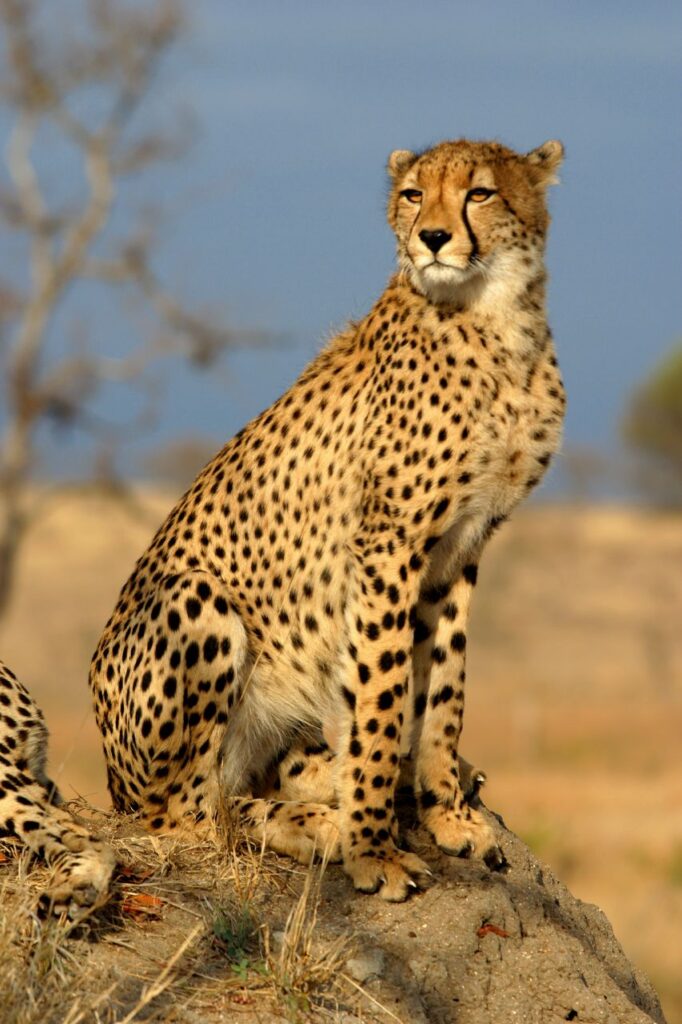Project Cheetah is an Indian initiative to bring African cheetahs to India, and the National Park in Three States. This article is about a cheetah project that has just been started in India – this article provides details on what Project Cheetah is, why India is bringing these eight cheetahs into their country, and who will take care of them.
Eight Project Cheetah African cheetahs will be kept at the Ajni national park in India
Ajni national park is located in Madhya Pradesh, India and is home to the world’s second largest population of cheetahs. The project will involve the translocation of eight cheetahs from a wildlife sanctuary in South Africa to Ajni.
The goal of the project is to help preserve the endangered species and improve their conservation status. The cheetahs will live in a protected area and have access to sterilization and vaccination programs. The translocation will also help increase the population of this species in India.
What is Project Cheetah?
Project Cheetah is a conservation initiative that aims to protect African cheetahs from extinction. The Ajni national park in India will house eight of these endangered cats. The project is a collaboration between the government of India and the World Wildlife Fund (WWF).
The goal of Project Cheetah is to help the cheetahs thrive in their natural environment and eventually re-breed them back into a viable population. The park will provide the cats with food, water, and shelter. In addition, the WWF will work to educate people about the importance of conserving cheetahs and their habitat.
Why India is bringing African Cheetahs?
India is one of the few countries in the world to have cheetahs and they are considered a national treasure. Ajni National Park is home to eight African cheetahs and they will help preserve the endangered species. The park was established in 1984 and it’s located in the state of Madhya Pradesh. The cheetahs will help maintain the population of the species and also help reduce poaching.
How big are Indian Parks?
Eight Project Cheetah African cheetahs will be kept at the Ajni national park in India. The park is located in the Western Ghats region of India and is one of the largest reserves for wild animals in the country. The cheetahs will be used for research and conservation efforts.

What are the Pros and Cons of this Project?
Eight Project Cheetah African cheetahs will be kept at the Ajni national park in India. The pros of this project are that the cheetahs will be kept in a protected environment, and they will provide a valuable service by helping to conserve endangered species. The cons of this project are that it is unknown how long the cheetahs will be able to live in captivity, and it is possible that they may not be successful in breeding.
What Other things Should Visitors know before they visit the city of Thiruvananthapuram?
Thiruvananthapuram (Trivandrum) is the capital of Kerala and located about 150 kilometers south of the state’s northernmost tip. The city is well connected by air and railway with other parts of India. Kerala Tourism has made a concerted effort to promote Thiruvananthapuram as a tourist destination. Eight Project Cheetahs will be kept at Ajni National Park in India.
Also watch a detailed video on Cheetah Reintroduction Project – India prepares to welcome Cheetahs from Africa:
Why are Cheetahs being Reintroduced?
Ajni National Park is home to eight Project Cheetah African cheetahs. The reintroduction project is part of a larger effort to protect the cheetah from extinction.
Ajni National Park is located in the Indian state of Maharashtra. The park is made up of open grassland and forests, and it was created in 1984 to protect the Asiatic cheetah (Acinonyx jubatus) and the black-footed cat (Felis silvestris lybica).
The Ajni cheetahs were born at the San Diego Zoo Safari Park in 2001. The park donated two female cheetahs and four male cheetahs to the project. The males were later transferred to the Wildlife Conservation Society’s Netherlands Antilles facility, where they lived until their deaths in 2010 and 2011, respectively.
The goal of the reintroduction project is to increase the population of Asiatic cheetahs in India, which has declined by more than 60% since the 1960s. The project also aims to improve understanding of how cheetahs interact with their environment and each other, so that future conservation efforts can be based on sound science.
Also Read: Engineers Day: What Does It Have To Do With Engineers?



